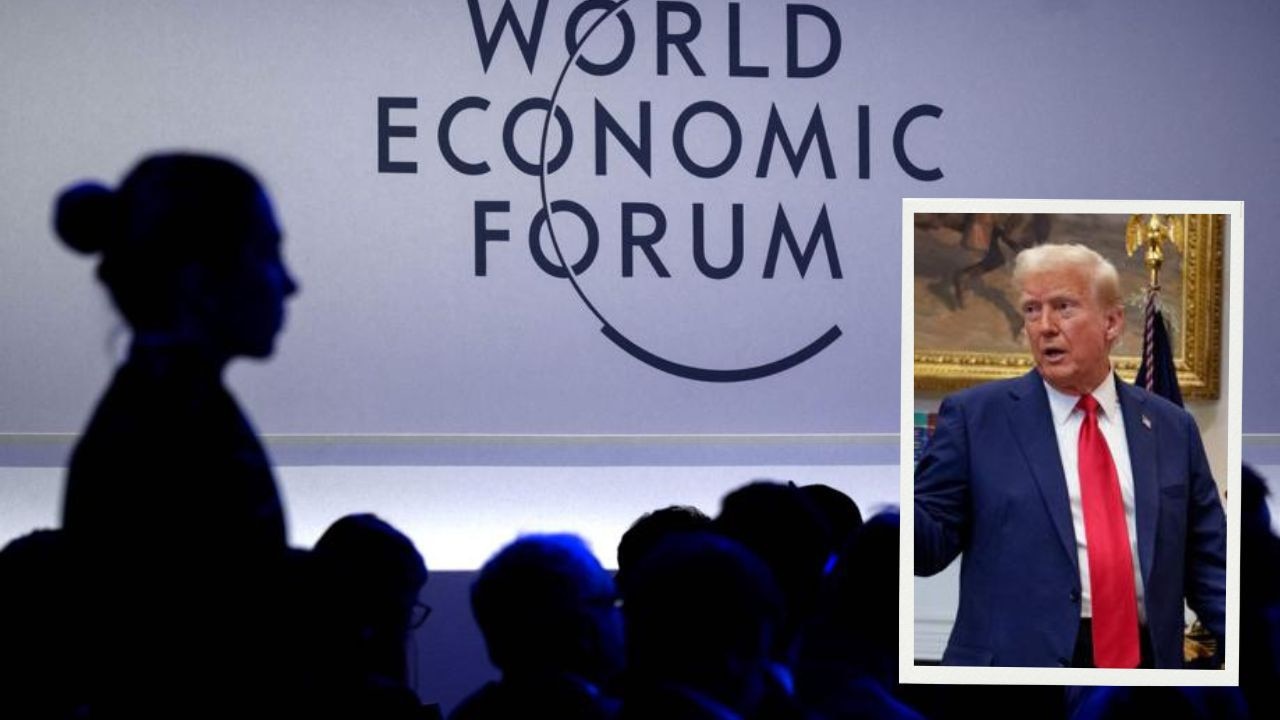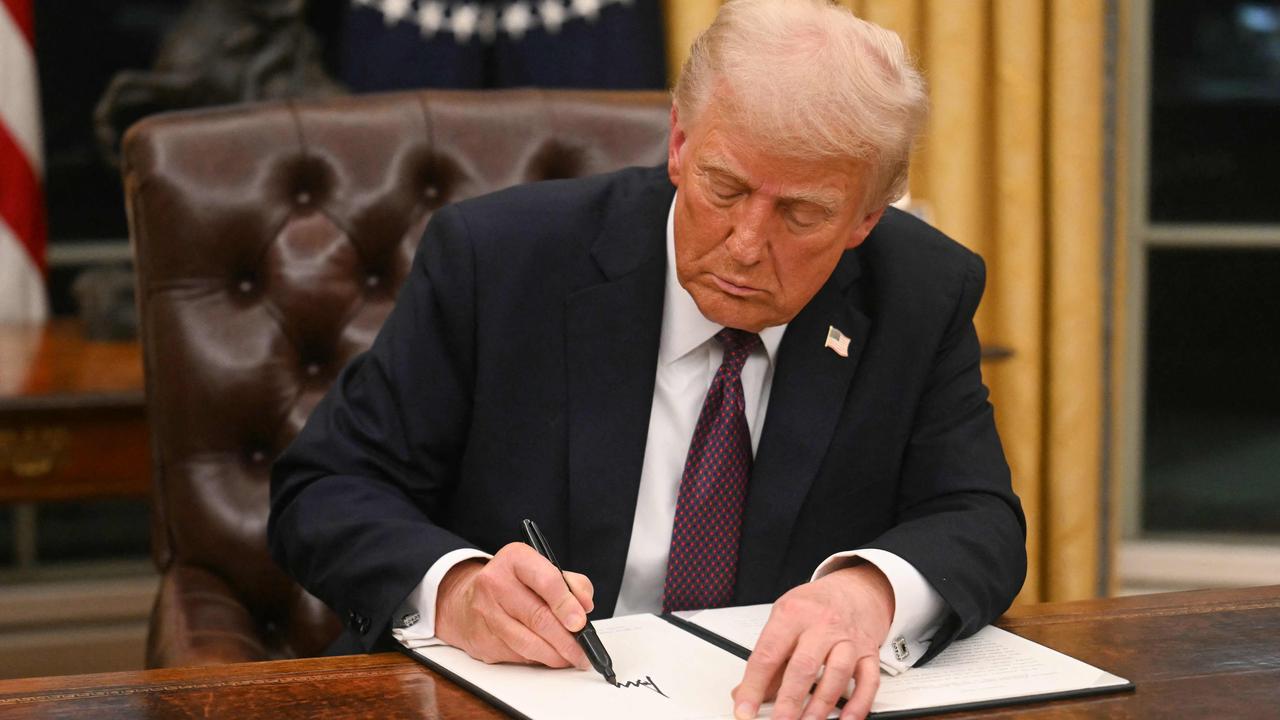Venezuela’s dissidents plot comeback after months in hiding, exile or jail
Venezuela’s opposition leader and its most popular politician are planning a last-ditch attempt to stop President Nicolás Maduro clinging to power when his term ends this week.
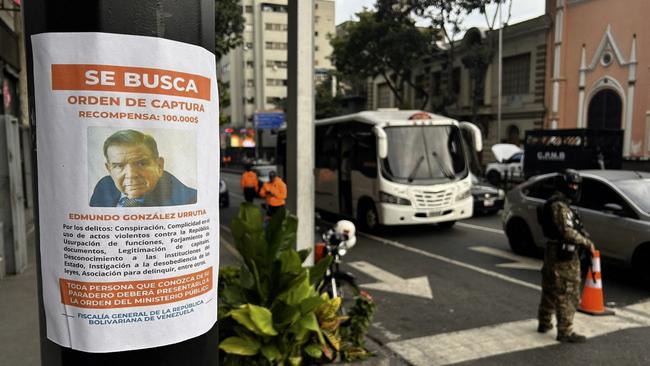
After months in hiding from the secret police, Venezuela’s opposition leader and its most popular politician are planning a return to the public stage -- a last-ditch attempt to stop President Nicolás Maduro clinging to power when his term ends this week.
In a video interview with The Wall Street Journal from an undisclosed location in Venezuela, María Corina Machado called on supporters to join her on the streets to protest against Maduro’s plan to begin a third presidential term Friday despite his huge loss in last summer’s election. Maduro’s regime launched a brutal crackdown on opposition figures and protests in the wake of his election defeat.
Edmundo González, who stood in for Machado when the regime barred her from running for president and was forced into exile after the result, met with President Biden at the White House on Monday. After the meeting, he thanked the Biden administration “for its support in this struggle for the democratic recovery of Venezuela. It’s a commitment we carry with us.” During Maduro’s 12-year rule, Venezuela has suffered an economic implosion, diplomatic isolation and a civilian exodus. Maduro has cemented the country’s position as a haven for drug traffickers, U.S. officials say, and given U.S. rivals Russia and China a sturdier foothold in the Western Hemisphere.
“If Maduro remains, prepare yourself because we will see three, four or five million Venezuelans crossing the border,” Machado, a conservative, said on Sunday, sitting in front of a bare wall, dressed in a pressed white button-down shirt.
She called on supporters to defy the country’s security services and threat of arrest, to “go out with their families, with their children, with their grandparents -- with their dogs,” to denounce the authoritarian president’s move. But, with the military still under Maduro’s control, there is little evidence that Venezuelans will heed the call to rise up.
Venezuelan troops have largely shut down dissent in the country after violently quashing protests following the July 28 vote. Government officials in Caracas didn’t respond to requests for comment.
The Venezuelan military’s counterintelligence unit said in recent days it would deploy some 1,200 armed troops in riot gear to quell possible protests. They are led by National Guard Col. Alexander Granko, who is sanctioned by the U.S. for alleged human-rights abuses. Police have set up roadblocks around the capital.
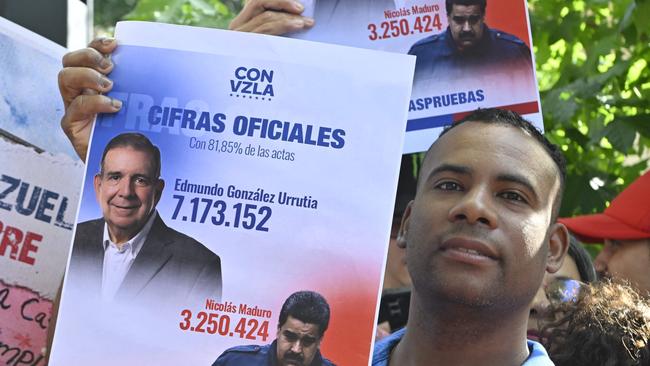
From hiding, where Machado says she has been alone for months, the 57-year-old has conducted a covert campaign to rally support for Venezuela’s political opposition via video calls with everyone from foreign leaders and diplomats to activists and supporters, she says.
After the elections, Machado’s party collected voter tallies showing González defeated Maduro in a landslide.
The regime didn’t provide evidence that it had won but embarked on a campaign of repression, targeting the opposition. González, a 75-year-old former diplomat, initially fled to exile in Spain and is now rallying support in the Americas, where he met with Argentine President Javier Milei on Saturday in Buenos Aires.
At the international airport outside Caracas, the government has in recent days distributed fliers featuring González’s face, offering a reward of $100,000 for information leading to his arrest.
Over the past five months, the regime has jailed more than 2,200 people, mainly dissidents, maintained the military’s loyalty and tasked the Supreme Court, stacked with Maduro’s handpicked allies, with resolving the election impasse, which it did in his favor.
“Anyone who had an important responsibility in the movement and in the success of the July 28 victory is either exiled, hiding or imprisoned,” Machado said, adding that the security forces have visited her elderly mother and the relatives of other activists. “In my case, Maduro says I’m a terrorist who’d fled justice, that I should spend my life in jail.” Machado was vague about her location during the interview and nonspecific about how she has avoided arrest. “What I can say is this is totally different for me because in recent years I’ve been running around all Venezuela, surrounded by thousands of people,” the veteran politician and onetime engineer said.
The rallies in which thousands thronged to see her are a thing of the past; the threat of arrest has deterred opposition gatherings. Machado’s only links to the outside world now are the videoconference calls she holds from hiding, including with her three grown-up children, who live abroad.
“I pray every day, and dedicate some time to that,” she said. “And I communicate with my father, to whom I’m very close. He’s no longer with us, but I have him close to me.” Her late father, the industrialist Henrique Machado, had led Venezuela’s largest metals company before it was expropriated by the socialist government and driven to ruins.
The opposition’s plan is to upstage Maduro with the return to Venezuela of González, whom they intend to swear in as president. “Some say he’ll come into Venezuela through some clandestine route,” said Carlos Romero, a historian and political analyst in Caracas.
The opposition could then have González take the oath before a parallel Supreme Court they have set up, Romero said, but the likelihood of that is slim, given Maduro’s tight control of the security services and the court’s lack of legitimacy in the regime’s eyes.
If González were arrested and Venezuelans rose up in protest it would be hard to predict what could transpire, Romero added. “Everything is possible at this moment in Venezuela,” he said.
Interior Minister Diosdado Cabello, one of Maduro’s main enforcers, recently used his program on state TV to show off handcuffs that he characterized as a gift for González should he dare return to the country.
“They think they can scare us,” Cabello said of his political foes. “They’re terrorists, people who destabilize, they don’t recognize the constitution, electoral criminals. They’re traitors.” The Trump transition team didn’t respond to a request to comment on its plans for Maduro. In Trump’s first term, sanctions and an effort to work with the dissidents to set up a parallel government in opposition to the regime failed to dislodge the Venezuelan leader.
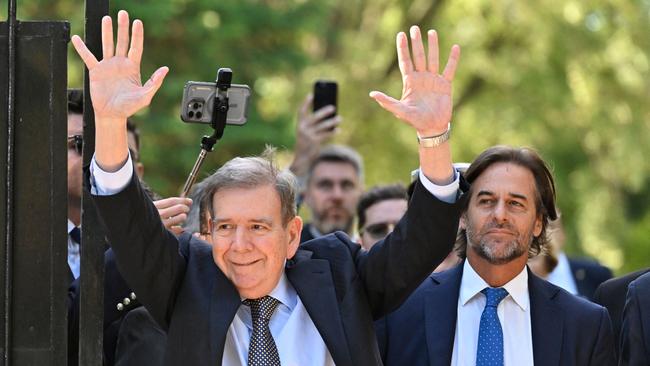
Trump has said that avoiding foreign entanglements is a cornerstone of the incoming administration. On Saturday, newly installed Republican Sen. Bernie Moreno of Ohio told reporters that the president-elect would work with Maduro since he would continue to be in charge of Venezuela, and the U.S. needs to engage with him to curb migration and drug trafficking.
But Trump’s picks for State Department and national security roles, as well as his Latin America envoy, are all Venezuela hawks. “They have held unequivocally firm positions,” against Maduro, Machado said.
During years of strained talks, the Biden administration had offered amnesty to Maduro in exchange for a smooth transition, The Wall Street Journal has reported, but the strongman refused any deal that involved him giving up power.
With Maduro clinging to office, Venezuela would remain a major platform for cocaine shipments to the U.S. and Europe, Machado added, and migration would also increase. Some eight million people, or a quarter of the population, have fled the country since Maduro came to power.
Machado said that Venezuela’s opposition is now stronger and more united, with wide support across income levels.
Maduro, meanwhile, lacks strong popular support and has seen his closest allies, from Russia to Iran, more limited in their ability to offer assistance to their client states -- as evidenced by the recent fall of the regime in Syria.
“If they didn’t come out for Bashar Al Assad, are they going to do it for Maduro?” Machado asked, referring to Russia and Iran’s lack of support in the dying days of the Assad regime in Syria.
“I think in the end, [Maduro’s] regime suffers from profound international divisions and weaknesses,” Machado said. “They don’t have any way to persuade, to convince people, they don’t have social control. The only thing they have is the use of terror.”
Alexander Ward contributed to this article.
WSJ

